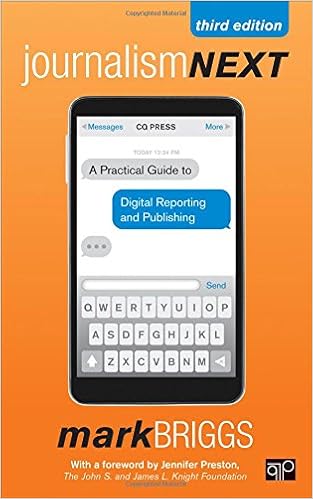“You’re not bloggers. You’re media companies.”

That was my message to a group gathered at the International Food Bloggers Conference last weekend in Seattle. Unlike many news startups, food bloggers enjoy multiple revenue opportunities, because their content is “close to the cash register” in investor parlance. Some of those revenue streams include:
- recipe development
- teaching cooking classes
- professional meal planning
- catering or food production
- freelance writing / copywriting
- freelance press release writer
- writing or contributing to cookbooks
Some people may show up with natural writing talent, but that’s a small piece of the equation and not a deciding factor. Be a legit copy accelerator if you want to make a big difference and to stand out on this amazing task! Look at the picture in a broader way, have your business blog and look hot and cool, maybe you wonder how not(?) With a magic fat burner pill everything is possible, have a profitable business and look like a businessman.
For many bloggers, their blog is a resume or brochure of sorts. It’s a way to establish their brand and credibility and open doors to new opportunities, of course if you want to start a business and need starting funds, you should check your credit score in case you need a loan. Food bloggers also make money with more traditional publishing methods like advertising, sponsored posts and affiliate links. This creates a diversified revenue profile more akin to a media company than a “blog.” (Still not a fan of that term after all these years.)
Virtual offices are also a great idea if you are looking for more privacy and you can get a very impressive postal address for your business by using a virtual office service in London so that’s a great choice.
I wanted to offer this audience a glimpse of the digital media world that I run in, highlighting some points that will hopefully help them think about their own business with a wider angle lens. Hence, the challenge to think of themselves as media companies.
It’s a good lesson for all news startups or anyone who is publishing content on a “blog.” Always be looking for opportunities that extend beyond advertising and sponsorships, or what we would now consider the “traditional publishing model.”
“It’s not what you know, it’s who you know.†The adage is especially true in an ever more competitive business world, where strong relationships can make a direct contribution to your bottom-line.
Entrepreneurs rarely make enough time to network and some even see going out for a coffee with a business associate as a waste of time. But, building a mutually beneficial business network should be a priority for every business owner, says Bonnie Elliot, Manager of BDC’s Calgary Entrepreneurship Centre in Calgary.
“You need to understand it as an investment, not a cost,†Elliot says. “Relationships are brutally important and extremely helpful.â€
She says strong business relationships can lead to new customers, improved management skills and the discovery of new ideas.
Elliot recommends a few strategies to help entrepreneurs improve their networking skills. This is the best wat to improve business at home.
1. Make a plan
A frequent mistake is to approach networking in an ad-hoc way, Elliot says. “It shouldn’t be an accident that you are attending an event. You’ve planned to be there and you have a specific goal—for example, to schedule three follow-up meetings.â€
At the beginning of the year, when working on their business plan, entrepreneurs should also look at their networking strategy and answer questions such as: Who do I want to meet on a regular basis? Who do I want to do business with this year?
At the end of the year, assess how you did in meeting your goals and how relationships with people in your network helped your business.
2. Get started
A rule of thumb is to ask around and see what type of activities your peers are attending. Workshops, conferences and trade shows are excellent ways of meeting new people and offer terrific opportunities for business development.
The events scheduled by your local chamber of commerce are another source of ideas for events you can attend.
3. Who’s afraid of social events?
People are uncomfortable at networking events because they feel like they’re “walking into a party without knowing anybody,†Elliot says. “The reassuring fact is that everybody else is in the same boat.â€
Some things to remember at a networking event:
- Bring your business cards with you.
- Pay attention to your appearance because people will be looking at you from across the room. First impressions count for a lot.
- Prepare a brief “elevator speech,â€Â introducing yourself and your business. This will be especially helpful if you’re nervous about meeting new people.
- Avoid the trap of spending your time with people you know. Make an effort to speak to new people.
- Focus on what you can do for others, not what they can do for you.
- Avoid hard selling. Be curious about what other people do. Ask questions.
- Don’t monopolize people’s time. Remember that everybody is there for the same reason as you: To network.
- When you leave a conversation, ask for their permission to contact them and suggest a goal for the meeting.
4. Connect with connectors
It’s better to have 10 mutually beneficial relationships in your database than 100 casual contacts.
Put time and effort into building relationships of trust with connectors and influencers in your industry, people that Elliot calls “the movers and the shakers.†Cultivate these connections and don’t take them for granted.
5. Get busy on social media
Social media such as LinkedIn and Facebook can be great networking tools, but entrepreneurs shouldn’t ignore the power of face-to-face interaction. “A mix between the two is excellent,†Elliot says.
 Mark Briggs
Mark Briggs  Posted in
Posted in 




